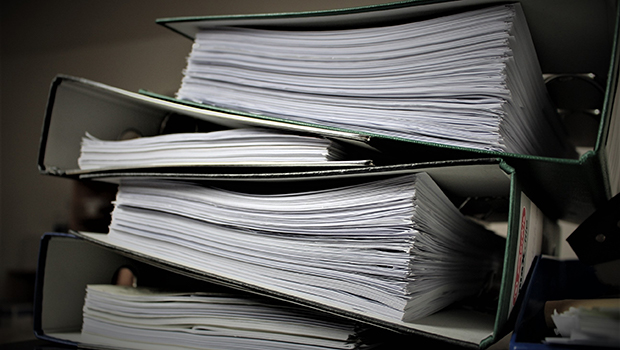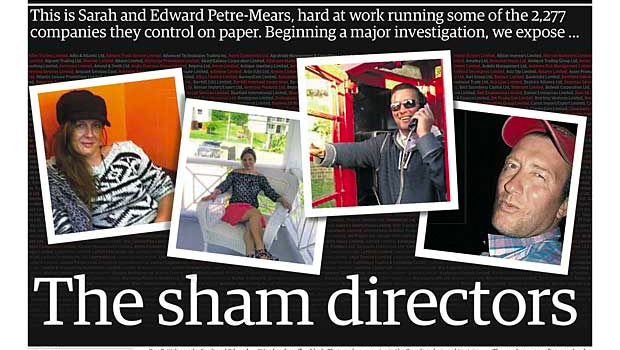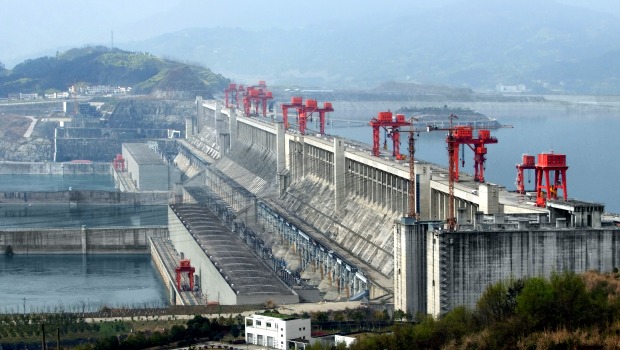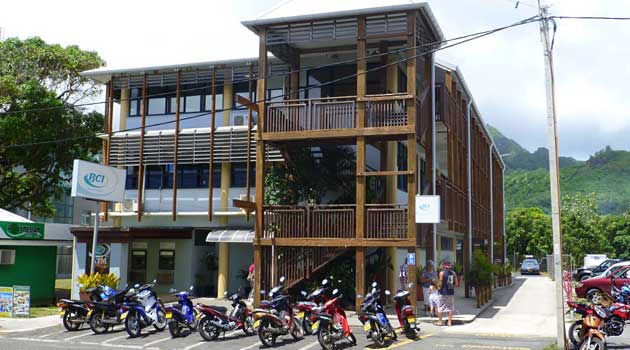Giannina Segnini is the director of the investigative team at La Nación newspaper in Costa Rica. This month she was awarded one of Latin America’s most prestigious distinctions, the Gabriel Garcia Marquez award for excellence in journalism. In this interview, she discusses her bribery investigations that helped put two former presidents of Costa Rica in jail, and offers advice to aspiring investigative journalists.
Your work on the “Finnish Project” and Alcatel bribery investigations helped send two former presidents of Costa Rica to jail. How did you find out about the story?
The work was done as a team with my colleague Ernesto Rivera. We investigated two different cases back in 2004 that triggered the criminal investigations against the two former presidents.
The first case, known in Costa Rica as the “Finnish Project”, related to a US$39 million purchase of medical equipment from Finland. We proved that the representative of the Finnish company in Costa Rica gave a house, as a bribe, to the president of the Costa Rican Public Health Institution (CCSS), Eliseo Vargas. He had promoted, as a congressman, a law that made possible the “Finnish Project.”
We got access to the bank accounts where the Finnish money flowed, and we analyzed their operations. We discovered that a company related to former president Rafael Angel Calderón also received money. We discovered from this company’s accounts that besides the Finnish money, there was only one other source of money: a rural law firm. This law firm had deposited half a million dollars into the company’s Panamanian accounts.
Digging into the law firm’s connections and legal reports, we found out that it was managing contracts for Alcatel, the massive French telecommunications company. Later it was proved that the law firm paid most of the bribes to public officials in order to get mobile contracts for Alcatel from the then-public monopoly of the telecommunications company, ICE. The officials who got payments included Costa Rica’s former president Miguel Angel Rodríguez.
What was the crucial breakthrough for you in reporting the Finnish Project and Alcatel stories? What approach did you use to get that information?
The investigation took us about a year and during that time there were many breakthroughs and revelations. For me, there were two particularly crucial moments: when we found a legal document that linked an employee of the Finnish company, Corporación Fischel, with the purchase of a house for Eliseo Vargas (the president of the Costa Rican Public Health Insitute). The other one we discovered searching on the internet. It showed that Corporacion Fischel’s President, Walter Reiche Fischel, was the president of the Panamanian company that paid for the house.
What are the key lessons you learned from your work on the Finnish Project and Alcatel investigations?
The most important lessons I learned from the cases were:
- The biggest criminals write laws that make their crimes legal. That’s what I call transparent corruption.
- There are hidden and complex corruption networks where even leaders who publically campaign for transparency extract as much as they can from their administrations. Not even in the most extreme conspiracy theory would we have imagined, before these investigations, how wide and how deeply entrenched and those corrupt networks were.
- Many corruption networks and corrupts leaders are so greedy that they leave damaged people behind. These people may become important sources for an investigation.
- Corrupt individuals continue to use their wife’s names or relatives’ names as a front.
- In spite of the strict international regulations after September 11, banks don’t do real due diligence to find out the origin of the funds they accept. Most of them accept a simple signed contract that could be faked.
The main journalistic lessons were:
- We had access and explored, in advance, databases that were relevant to find information about the case. Identifying those data sources and exploring them is always a great investment.
- The worst attempt is the one you don’t try. Sometimes, we avoid doing the obvious and it’s precisely there where the evidence lies. We searched Corporación Fischel notaries’ registries, although it was difficult to believe that they used their own lawyers for the house’s purchase legal process.
- Many times it is much better conduct reporting outside of your country. If the evidence you are trying to find is also in a third country it’s worth it to try there. We found more valuable information about this case in Panama than in Costa Rica.
- Identifying how many copies a document may have and where exactly all the copies are located is a highly recommended exercise while reporting.
What is the path that led you to investigative journalism in the first place?
I always wanted to become an investigative journalist; actually I never imagined any other kind of journalism. Injustice makes me sick, even now after 20 years of doing this, and I am convinced that independent investigative journalism is one of the best ways to pursue and reveal the truth.
How has the increasing importance of digital and online media (especially the immediacy factor they emphasize) impacted the quality and practice of investigative journalism?
Digital and online journalism does not necessarily refer to immediacy. Digital journalism is not about technology; it’s still about doing great journalism, empowered by technology and design.
Many editors have prioritized using digital tools instead of journalistic criteria and the quality of the content. Confused about what is really important, they have designated as “online editors” or “community managers” early adapters to social media who tweet all day, but who are not necessarily experienced and rigorous journalists.
But these early adapters are not to blame. They are doing their best to occupy a space that the experienced journalists left empty because they are intimidated and petrified by the power of technology. Attached to their coffee-sprinkled notebooks, many of them refuse to change and experiment.
The result of this situation is as obvious as it is dangerous. By reducing the quality of content (loosing rigorousness on the hands of inexpert people), editors are destroying the only really important asset media outlets have: their credibility.
Have you employed a lot of data-based methods in your investigative reporting? If yes, what kinds of data do you use and how?
We at the investigative unit in La Nacion started a very unique experimental project on data investigative journalism four years ago. The model consists in gathering and consolidating public databases to uncover investigative stories out of them. In addition to the investigative journalists, we started working with two developers mining big data and interviewing oceans of datasets to discover hidden stories.
We are the only investigative journalistic team around the globe that has consolidated all sorts of public databases with the sole purpose of conducting data investigative journalism out of it. During the last four years, we have automatized the ways we gather, clean and process these data.
Talk about your approach to stories. Is there anything unusual about the way you conduct your research or choose your themes.
Traditional investigative journalism follows the scientific method to approach a story. We used to define a hypothesis to either prove it or discard it. We are still doing that, but also we just explore, analyze and visualize big data to find patternsand weird behaviors.
Traditional investigative journalism depends a lot on leaking. There are many sources that want to control the journalist’s agenda by leaking a piece of information that benefit them. By conducting data investigative journalism we can have access to the whole universe of information, not only what someone wants to deliver.
What are the key elements that make an investigative story truly “click”? What do they have to have and what should they not be missing?
An investigative story should be conclusive. There is no room for “maybes” or “possibilities” in investigative journalism. The conclusions have to be found by the journalist or, even better, by a multidisciplinary team of journalists, developers and scientists working together. In spite of the impact a story may have, if it’s the product of a third party’s investigation, such as prosecutors or auditors, it’s not investigative journalism.
An investigative story has to detail and show all the evidence that support all its conclusions. With some exceptions, an investigative story is not based on testimonies, let alone on anonymous sources. Testimonies are usually vague, ambiguous, volatile and, in general, not trustworthy.
An investigative story has to be relevant for its audience and clearly explain how the findings affect people’s life. Some stories fall short on breaking down the effect of general policies, procedures or money management on people’s lives.
What is the biggest single threat to investigative reporting and what advice can you give to others?
Limited access to public information is, without any doubt, the most common threat to investigative reporting.
I always recommend making use of every legal possibility to demand for public information, even if it’s time consuming.
Many journalists don’t even know the legal framework they have in their countries. Before asking for information, we should know in detail the legal nature of it and the State obligations and conditions to make it public. If there is not a right to information law, like in our case in Costa Rica, we still can use other legislation like the Constitution, the administrative and procurement law, etc.
The journalist’s motivation is also a very important issue for me. A journalist who is driven by revenge, biases, or personal motivations should never be given the chance to do investigative journalism. We should reveal injustice in all its forms but we should not have a partisan agenda, target a specific person, or have as a goal to destroy people’s reputation. That’s not our mission. Biased journalism is many times treated as investigative journalism.
Media outlets are desperate for immediacy and give less time to investigative journalism. Journalists have to convince their editors, and even use their private time, to show that investigative journalism is what really adds value and credibility to their agendas.
What other tips would you give young, emerging, investigative reporters?
Investigative journalism is not a glamorous easy path. The equation is full of extra work and a permanent persistence to understand complex and sophisticated situations.
If you are not following your passion and personal convictions, you may find investigative journalism as a crazy unfair practice and easily get frustrated on the way. Every time you successfully conclude a story and only receive pressures as a response, remember you are not doing this to please your editors, the company you work for or the system, but your convictions.
Applauses and awards are nice, but we don’t work for that. If you are expecting only that, you better do other kind of journalism.
Do not expect to learn everything you need from formal training. You are the only responsible person for your own professional development. There are thousands of free tools on the Internet, with available manuals and videos that you can try and adapt on your own.
Don’t get intimidated by technical language. There is nothing so difficult that you cannot understand if you have the will and spend the time to understand it.
Start to approach other kinds of sources. Politicians and formal leaders usually know fewer details than middle managers or technical unknown sources like IT officials or auditors. Real estate agents, luxury goods sellers and former financial managers of companies and institutions are great sources as well.



